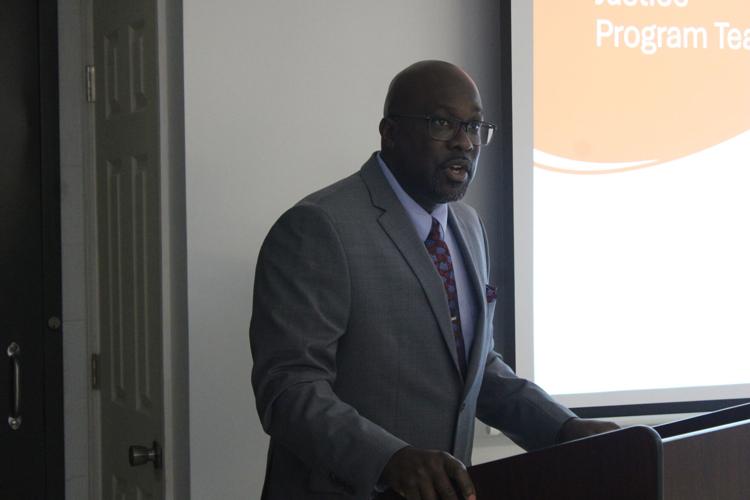Mental health court and restoration services are ways a partnership between the Aiken County detention center and a local mental health agency are addressing mental health issues .
Detainees in the Aiken County detention dealing with a mental health issue will no longer have to wait weeks or months for services due to partnership between the Aiken County detention center and Aiken Barnwell Mental Health. The partnership has been able to provide mental health services.
“We get them to a point where they can be restored — basically understanding the basis of the legal systems or courts and move forward from that," said Varney Hodge, who serves as the chief of Jail Services and Mental Health Court through Aiken Barnwell County Mental Health.
Some services that have been provided include nursing, therapy, crisis intervention and psychiatric services. The partnership has also allowed for Mental Health Court and restoration programs.
“We want to be able to put those people in need of services with the services," said Aiken County detention center administrator Nick Gallam.
Hodge said Aiken Barnwell Mental health has been providing services since 2018. From 2018 to 2023, 6,087 detainees have received services; with 1,311 detainees received services in 2023.
Additionally, 437 detainees have had a psychiatric medical assessment, 143 were screened for suicide, 157 were provided entitlement services and $93,893,86 was received as reimbursement to the jail for long-acting injectable medications.
Hodge said eight people were part of the first cohort of the competency restoration program, and it has saved the detention center $70,000.
Hodge said the restoration program helps people to become familiar with the court system .
Hodge said Mental Health Court is a diversion program that started in 2020. He said instead of someone going to jail they can receive treatment from within the community. The treatment is court mandated and can include random drug tests, employment, housing and would usually take two years to complete.
Six people are currently in the program and two people have completed the program. To be eligible a person must be diagnosed with a mental illness such as bipolar disorder, schizophrenia, major depressive disorder or anxiety disorder or a co-occurring disorder such as mental illness and substance use disorder. The person must reside in Aiken County, understand the terms and condition, must have a misdemeanor or a non-violent felony, agree to services from the Aiken Barnwell Mental Health, plead guilty to the charges and more.
If someone is successful with mental health court, their record could be expunged.
“Our position is not only to help them with the mental health services, but also with community resources so they won’t re-offend, reducing recidivism," Hodge said
Gallam said about two years ago, some state legislation changed in relation to restoration, which has allowed the detention to treat detainees with mental health issues.
Gallam said when an offender is in jail and has mental health issues they go through a competency evaluation and if they are found incompetent they are ordered to be in a restoration program by a general sessions judge.
Prior to law, restoration could only be done at the South Carolina Department of Mental Health in Columbia. The law now allows those restoration efforts to take place anywhere.
“That restoration can be done anywhere, e.i., detention centers,” he said.
Gallam said the detention began to explore that option and Hodge went through training to provide the restoration services to inmates.
“We are pretty much up and running now,” he said
South Carolina Department of Mental Health Director of Forensic Services Dr. Kelly Gothard said the goal is help people who are dealing with a mental illness and help them get them to a place where they are able to stand trail.
She said the program has saved 1,000 beds when people aren't getting treatment and were able to get the services they needed. She said it also provides closure for the victims .
“This is allowing us to get to people faster, more effectively and not everyone can be treated in the jail, but for those who are clinically appropriate we are able to work with the teams here, reducing the time they wait for a bed tremendously," she said.









